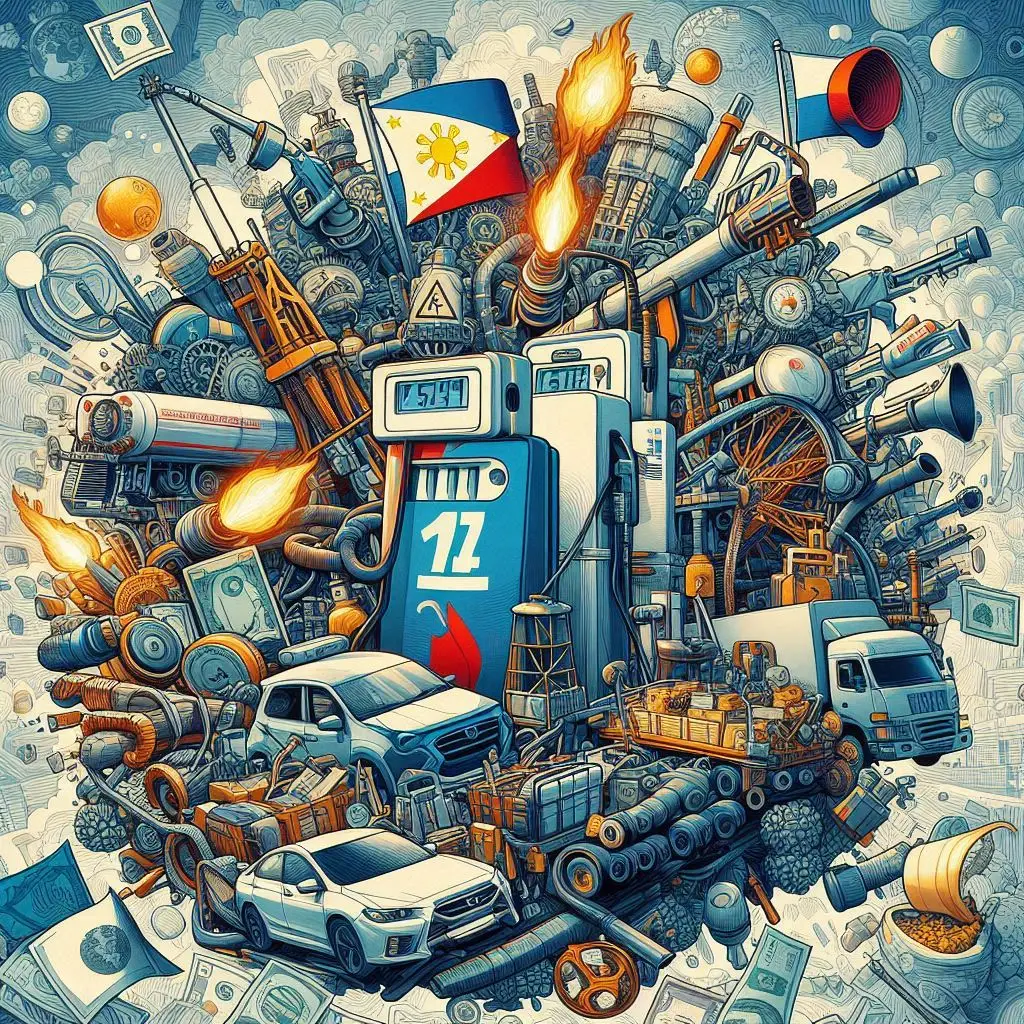
Gasoline fuel price Philippines
This article, Gasoline Fuel Price Philippines, seeks to explore the complex relationships between the economic, geopolitical, and environmental issues that affect gasoline fuel prices in the Philippines.
In the Philippines, a complex interaction of social, political, economic, and environmental variables determines the price of gasoline. Because the country relies on imported oil as well as complicated supply chains, tariffs, and government regulations, the fuel industry is very vulnerable to changes both domestically and internationally. Policymakers must balance economic interests, environmental concerns, and consumer welfare as the nation moves toward a more sustainable and energy-efficient future. A stable and reasonably priced gasoline market that supports the Philippines' economic development and environmental sustainability requires constant observation and calculated adjustments.
It is critical to recognize the complex interplay of variables in the Philippines' constantly changing gasoline fuel costs. A complex network of factors including public opinion, social ramifications, international geopolitical dynamics, and technical developments influence how much fuel costs. In order to achieve economic growth, energy security, and environmental sustainability, the country must take a comprehensive strategy that takes social, technical, and economic factors into account. To maintain a flexible and robust energy sector that can fulfill both the requirements of the present and the future, policymakers must constantly review and modify their policies to navigate the complexity of the gasoline market.
Fuel is a fundamental element of the energy landscape that powers automobiles and propels economic activity. Gas price fluctuations are a major worry for both consumers and politicians in the Philippines, a rising archipelagic country that depends significantly on transportation.
Economic Factors: The world oil market is one of the main factors that affects gas prices in the Philippines. Being a country that imports oil, it is vulnerable to changes in global oil prices. The price of crude oil is directly impacted by the dynamics of supply and demand, geopolitical unrest, and production choices made by major oil-producing countries. Crude oil prices are then translated into local gasoline prices. The retail price of gasoline is also heavily influenced by economic variables such as currency rates, inflation rates, and general economic health.
Government Policies and Taxes: In the Philippines, the total cost of gasoline is largely influenced by government policies and taxes. Value-added tax (VAT), excise taxes, and other levies have a direct impact on the ultimate retail price of gasoline. Fuel prices may fluctuate as a result of the government's choice to modify these levies in response to the state of the economy and revenue requirements. Furthermore, government actions or subsidies have the potential to mitigate or intensify the effects of fluctuations in the world oil price on domestic consumers.
Supply Chain and Distribution Costs: There are several expenses associated with the importation, refinement, and distribution of gasoline in the Philippines, all of which go toward the ultimate retail price. The entire cost structure is influenced by distribution charges, storage fees, and transportation costs. Obstacles like inadequate infrastructure, gridlock in the streets, and inefficiencies in the supply chain may increase these expenses even more and affect the price that customers pay at the gas pump.
Environmental Regulations: The composition of gasoline and its manufacturing costs may be affected by environmental factors, especially those regarding emissions requirements. Petrol prices may be impacted if the Philippines transitions to greener and more sustainable energy practices and environmental rules force modifications to refining procedures or the introduction of alternative fuels.
Demand and Consumer Behavior: The dynamics of price are also influenced by consumer behavior and fuel demand. The total gasoline demand may be impacted by changes in transportation choices, economic activity, and seasonal fluctuations. Adoption of fuel-efficient automobiles or other forms of transportation may also affect general consumption patterns and, in turn, the equilibrium between supply and demand that determines pricing.
Beyond the economic and environmental factors, public perception and social ramifications are also very important in determining the gasoline fuel price landscape in the Philippines. Variations in the cost of gasoline often cause public responses, which impact attitudes and beliefs about the capacity of the government to control the economy. Excessive fuel costs may spark demonstrations, public unrest, and demands for government action. On the other hand, reduced costs might be seen favorably, increasing customer assurance and mood toward the economy.
The influence of gasoline costs on society is felt by many different groups, especially by those whose livelihoods rely on transportation. Fuel price fluctuations have an immediate impact on a number of industries, including public transit, agriculture, and logistics. The cost of life for the typical Filipino person may rise as a result of rising transportation costs, which may have a domino effect on the cost of products and services. Thus, developing policies that strike a balance between social welfare and economic stability requires a knowledge of and response to the social consequences of gasoline prices.
Global Geopolitical Dynamics: Gas prices in the Philippines are significantly influenced by the geopolitical environment. Variations in oil prices may be caused by tensions in the areas that produce the oil, political disputes, and unpredictability in the world economy. Due to its heavy reliance on oil imports, the Philippines is susceptible to these geopolitical forces. It becomes essential to work on diversifying energy sources and creating more reliable supply chains in order to lessen the effect of international geopolitical events on the price of gasoline.
Innovations in Technology and Alternative Fuels: The Philippines' gasoline industry has both possibilities and problems as a result of the introduction of alternative fuels and the changing energy technology environment. The dependence on conventional gasoline-powered cars may eventually decline thanks to developments in electric vehicles (EVs) and renewable energy sources. Although this change is in keeping with the objectives of global sustainability, it presents difficulties for the current gasoline infrastructure and may eventually affect the dynamics of price and demand.

